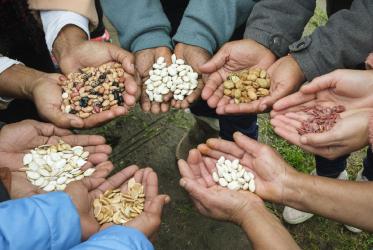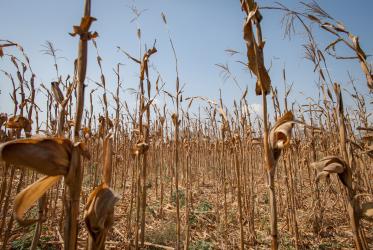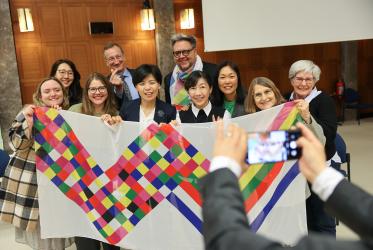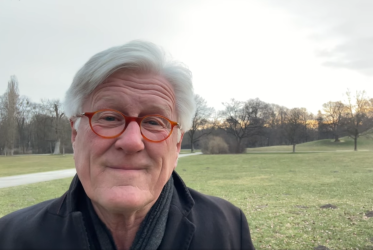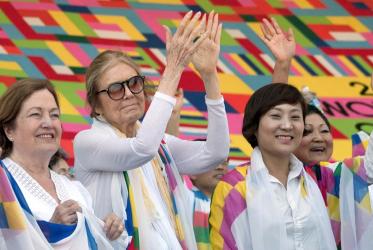Women are at the heart of agriculture, yet too often their core function is neither recognised nor supported.
That message stood out to me in the annual meeting of the Food for Life strategy group that I attended last November.
The issues that affect women came up in all discussions, whichever goal of the Food for Life campaign, run by the Ecumenical Advocacy Alliance (WCC-EAA), was on the agenda.
Members of the strategy group told stories from farmlands in Africa and Asia, about on-going work alongside the United Nations Commission on the Status of Women, about access to resources. The organisations that the WCC-EAA partner with respect the fundamental importance of women in agriculture and in the pursuit of food security.
The discrepancy in gender equality in agriculture is a serious barrier to achieving food and nutrition security. Although women represent 55% of the economically active population, only 15% are in remunerative employment. Women do 43% of agricultural work globally, and that figure is larger in sub-Saharan African and Eastern Asian countries. Women’s status is linked to nutrition, which is linked to education and health.
The future of the world depends on fixing so many of our social issues, and it is my belief that overlooking women will continue to come at a high price. Addressing this can be a practical response to a major injustice that exists in our world.
Mary Robinson, one of my personal heroes, advocated for women at the United Nations climate summit (COP21) in Paris in late 2015. She has consistently made the argument that women are more affected by climate change than men.
Climate change and agriculture are highly connected. Climate change brings vulnerability, and as women and girls already live vulnerably, the effect is intensified on their wellbeing.
Yes, the Paris Agreement finally acknowledged food security in very broad terms as a climate concern, but it is not enough. We need stronger language linking food insecurity, agriculture and climate change, and we cannot ignore women in that discourse.
When governments and policy makers fail to address this gap adequately, it falls to us, civil society and special interest groups, to speak up. We represent vulnerable, marginalised communities and it is in our common interest to bring more equality to the world order.
Another woman who has shaped my thinking over the years is the eco-feminist and seed sovereignty activist Vandana Shiva, who similarly spoke at COP21 with the message that ‘the same patriarchal world view that abuses women has violated the earth’s ecological limits by thinking through separation and division’. These words are what come to mind when I think of a pilgrimage for justice and peace.
Much of the world is under the illusion that reducing it to parts is a viable way of life, when in fact the world has always been connected and inter-dependent parts in synergy. Working the land, as in agro-ecological food production, grants more connection, more understanding and awe of the way ecosystems function.
Peace springs from connection, compassion and listening. This applies to our relationship with the natural world: the UN Secretary General said at COP21 that the Paris Agreement would be about ‘making peace with our planet’. The US President also referred to the summit in peace terms.
For me, the link between peace, planet and people is in how we live our freedom. I feel deeply motivated, and my spirit energised, to work towards global peace and freedom exactly because I have the privilege of freedom.
The late Madiba, one of the freedom fighters to whom I owe so much, said ‘for to be free is not merely to cast off one's chains, but to live in a way that respects and enhances the freedom of others’. This is a call to action and one that I keep challenging myself with.
As one free woman, I see solutions at community to international level in other women. System thinkers, collaborative actors, holding diversity dear, women are largely an excluded and untapped resource.
We have to invite women into the centre of our work, and then stand back for them to take the lead.


